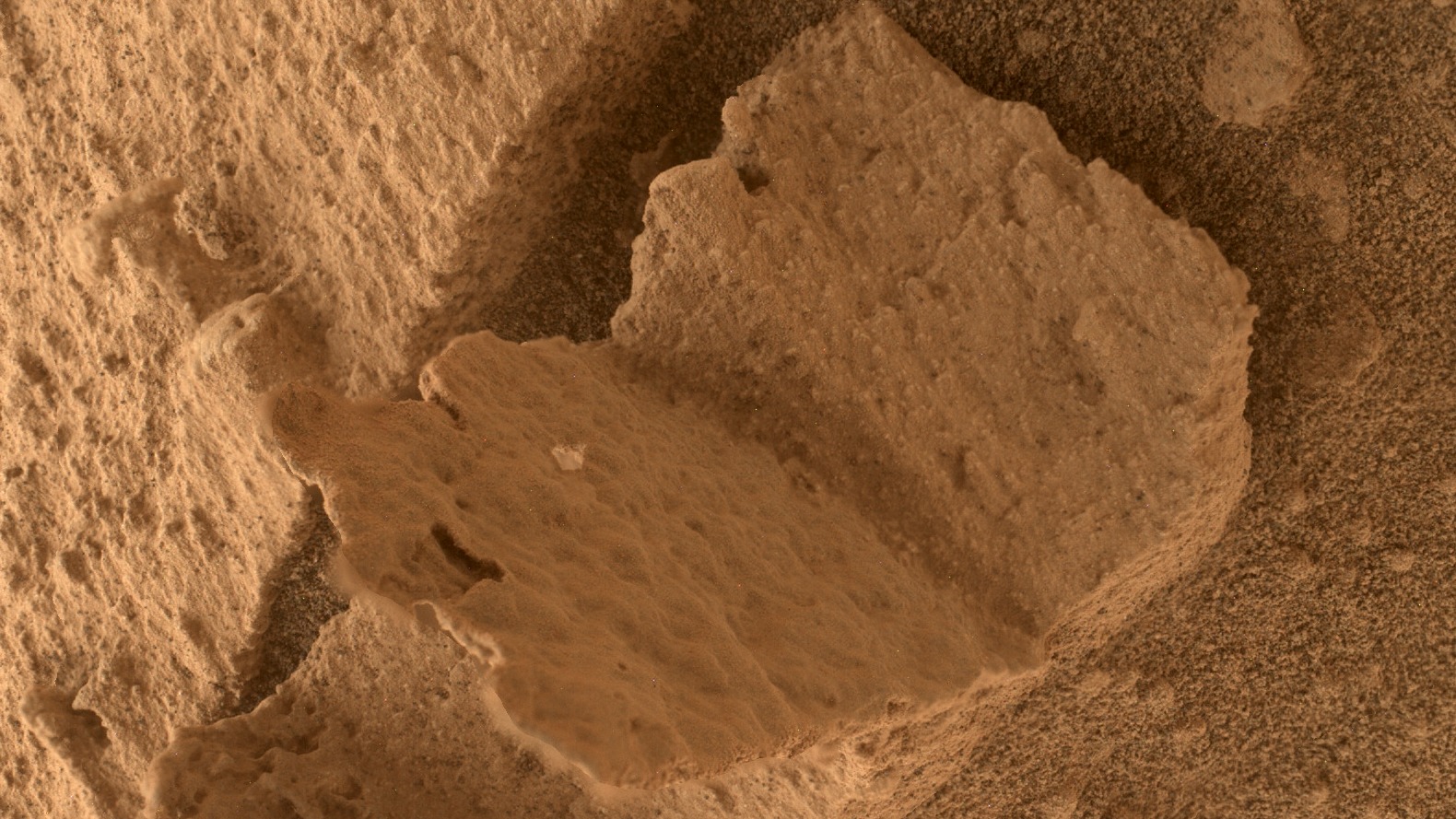Curiosity rover finds water-carved 'book' rock on Mars (photo)
'The harder materials are all that's left.'

On Mars, you can't judge a book-shaped rock by its cover.
NASA's Curiosity rover ran across the hardcover-shaped feature on April 15, which happened to be the 3,800th Martian day (or sol) of the long-running mission.
Much like librarians, geologists need to carefully read the clues around them. The strange shape of Mars rocks like this one are usually due to water trickling in the area billions of years ago, when the Red Planet was much wetter, NASA officials said.
Now the planet is much drier, and windier. "After eons of being sand-blasted by the wind, softer rock is carved away, and the harder materials are all that's left," officials with NASA's Jet Propulsion Laboratory (JPL) in Southern California, which manages Curiosity's mission, stated on Thursday (May 11) of the find.
Related: Curiosity rover: 15 awe-inspiring photos of Mars (gallery)
While writing is thought to have originated in ancient Sumer (near the modern-day Persian Gulf) some 5,400 years ago, according to the J. Paul Getty Museum, the ways in which humans record information is diverse.
One 2023 study suggests a cave painting's "dots" may be a form of writing from 20,000 years ago, although the conclusion is controversial. And more modern forms of writing have been placed on rock walls, in clay tablets or in scrolls, to name numerous types of reading formats.
Breaking space news, the latest updates on rocket launches, skywatching events and more!
What many people now call "books" originated with codices, first as wax tablets and then as parchment in the Mediterranean and Mesopotamian areas, according to the British Library. Dating is tricky, but the format seems to be fairly prevalent at least by Greco-Roman times — if not earlier.
Curiosity has been exploring Mars' Gale Crater since August 2012, with key results in science papers including the discovery of persistent liquid water on ancient Mars, potential evidence of ancient life through organics, and examinations of radiation at the surface, according to JPL.
A successor mission, Perseverance, is working in the Jezero Crater area of Mars and caching tubes (or lightsabers) of samples for future return to Earth. The sample return effort is expected to ramp up in the late 2020s with the launch of a set of relay spacecraft and a couple of mini-helicopters.
Elizabeth Howell is the co-author of "Why Am I Taller?" (ECW Press, 2022; with Canadian astronaut Dave Williams), a book about space medicine. Follow her on Twitter @howellspace. Follow us on Twitter @Spacedotcom or Facebook.

Elizabeth Howell (she/her), Ph.D., was a staff writer in the spaceflight channel between 2022 and 2024 specializing in Canadian space news. She was contributing writer for Space.com for 10 years from 2012 to 2024. Elizabeth's reporting includes multiple exclusives with the White House, leading world coverage about a lost-and-found space tomato on the International Space Station, witnessing five human spaceflight launches on two continents, flying parabolic, working inside a spacesuit, and participating in a simulated Mars mission. Her latest book, "Why Am I Taller?" (ECW Press, 2022) is co-written with astronaut Dave Williams.
